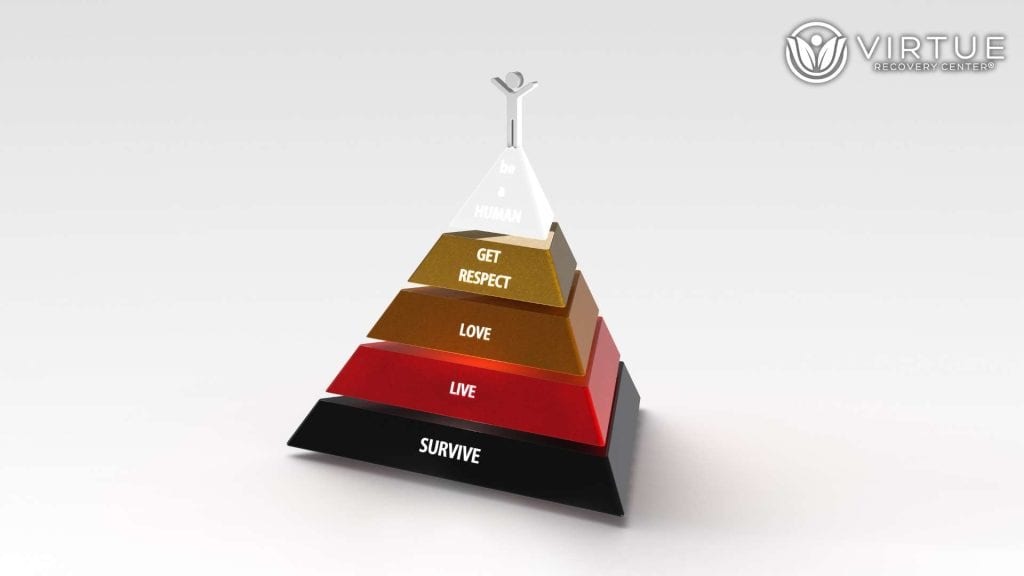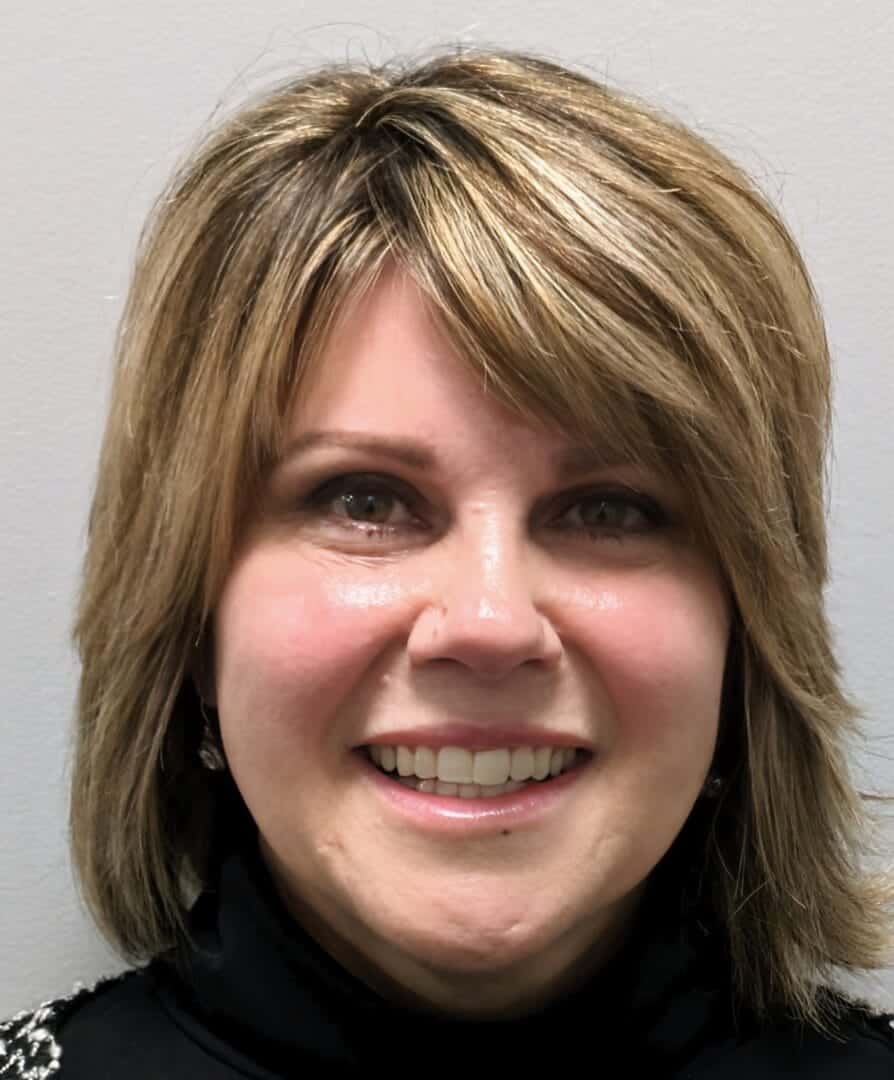Key Takeaways
- Maslow’s hierarchy helps explain how addiction disrupts basic human needs.
- Addiction affects everything from food and safety to relationships and self-worth.
- True recovery means rebuilding every level of need, not just quitting substances.
- Professional addiction treatment supports full healing—body, mind, and spirit.
- Everyone deserves to reach their full potential through sobriety and recovery.
Introduction
When we talk about alcohol and drug addiction, we often think about the obvious problems: physical health issues, broken relationships, and legal trouble. But underneath all of these struggles, addiction is also stealing something even more important—your ability to meet your most basic human needs.
In the 1940s, a psychologist named Abraham Maslow created a model called the hierarchy of needs. It explains what every human being needs to feel happy, healthy, and fulfilled. Addiction disrupts every level of this pyramid, pulling people away from the life they deserve.
In this article, we’ll explore how Maslow’s hierarchy of needs relates to addiction and recovery, and why building a strong foundation is key to lasting healing.
Understanding Maslow’s Hierarchy of Needs
Maslow’s hierarchy of needs is often shown as a pyramid with five levels. At the bottom are the most basic needs like food and water. As you move up, the needs become more about emotional and personal growth.
The five levels are:
First, physiological needs like breathing, food, water, and sleep.
Next, safety needs, meaning feeling secure and protected.
Then, love and belonging needs, which involve friendships, family, and romantic relationships.
Above that, esteem needs, which are about feeling respected, valued, and confident.
Finally, at the top is self-actualization, reaching your full potential and finding purpose.
Maslow believed that people must meet the lower-level needs first before they can focus on higher goals like building self-esteem or living a fulfilling life.
How Addiction Disrupts Basic Human Needs
When someone is caught in active addiction, the pyramid begins to crumble from the bottom up.
In the first level, addiction can destroy even the simplest needs. Many people struggling with substance abuse neglect food, sleep, and basic hygiene. Instead of nourishing their bodies, they focus on feeding their addiction.
Moving to the second level, safety becomes a major issue. Addiction often leads people into dangerous environments, risky behaviors, and unstable living situations. Fear, insecurity, and danger become everyday problems.
At the third level, love and belonging suffer greatly. Relationships with family, friends, and partners are often damaged or lost. Isolation and loneliness grow, making it even harder to escape the cycle of addiction.
Esteem needs collapse as addiction progresses. People may lose jobs, fall behind in school, or experience deep shame and guilt. Their self-worth crumbles, and it becomes hard to imagine a better future.
And at the top of the pyramid, self-actualization—the ability to become the best version of yourself—feels completely out of reach. Addiction keeps dreams small and hopes distant.
Physiological Needs and Addiction Recovery
In early recovery, the first and most important step is to restore basic physical needs.
Detox helps clear harmful substances from the body. Treatment programs make sure clients have regular meals, hydration, and a safe place to rest. Physical health begins to rebuild, giving the body the energy it needs to heal.
Without meeting these basic needs first, moving up the hierarchy becomes almost impossible. The body must be strong enough to support the mind and spirit.
Safety and Security Needs in Recovery
Once the body begins to heal, the next focus is creating safety.
Addiction treatment centers like Virtue Recovery Chandler work hard to create a safe, supportive environment. This includes structured programs, sober living spaces, medical care, and emotional support.
Feeling safe means more than just avoiding physical danger. It’s about feeling protected from chaos, fear, and instability. When people feel safe, their minds relax enough to focus on deeper healing.
Safety is what keeps recovery strong, especially during the difficult early days.
Love and Belonging Needs: Rebuilding Connections
One of the deepest wounds addiction leaves behind is broken relationships. Friends may walk away. Families may grow distant. Loneliness becomes a heavy burden.
Recovery is about rebuilding those lost connections. Treatment programs offer group therapy, family counseling, and opportunities to make new, sober friendships.
Belonging to a community—whether it’s a support group, a family, or a circle of trusted friends—gives people the strength to stay sober. It reminds them they are not alone, and they are loved.
Healing relationships is not just a bonus in recovery. It’s essential.
Esteem Needs: Restoring Confidence and Self-Respect
As recovery moves forward, the next goal is to rebuild self-esteem.
In active addiction, many people feel shame, guilt, and worthlessness. They may have lost jobs, hurt loved ones, or failed to meet their own standards. These feelings can linger long after getting sober.
Recovery is about slowly, carefully restoring pride and confidence. Every small achievement—attending a therapy session, making amends, staying sober one more day—helps build esteem.
Over time, people begin to see themselves differently. They are no longer defined by their addiction. They are strong, capable, and worthy of respect.
Self-Actualization: Reaching Full Potential in Recovery
At the very top of Maslow’s hierarchy is self-actualization. This is when a person lives life fully, pursues dreams, and becomes their best self.
For someone in recovery, self-actualization might mean going back to school, starting a new career, helping others through volunteering, or simply living each day with honesty and joy.
Addiction keeps people stuck in survival mode. Recovery opens the door to a life full of purpose, creativity, and passion.
Self-actualization isn’t a quick achievement. It’s a lifelong journey—and recovery is the first step toward reaching it.
How Addiction Treatment Programs Support the Hierarchy of Needs
Good addiction treatment doesn’t just help people stop using drugs or alcohol. It helps rebuild every level of human need.
At Virtue Recovery Chandler, treatment starts by meeting the most basic needs: food, shelter, medical care, and emotional safety. As clients grow stronger, therapy and counseling help heal relationships and restore self-esteem. Life skills training and goal-setting programs help people start dreaming again.
Recovery is not just about survival. It’s about learning to thrive.
Conclusion
Addiction corrupts the natural drive to meet basic human needs. It steals physical health, emotional safety, relationships, self-respect, and dreams. But recovery rebuilds the pyramid—step by step.
By meeting each level of need, from physiological needs to self-actualization, people can heal fully. They can move from just surviving to truly living, with a future full of hope and possibility.
If you or someone you love is ready to rebuild and reach their full potential, help is available.
Call Virtue Recovery Chandler today at 866-338-5779 to start your journey toward healing, growth, and a better life.
FAQs About Maslow’s Hierarchy of Needs, Substance Abuse, and Addiction Recovery
How does Maslow’s Hierarchy relate to drug addiction?
Maslow’s Hierarchy of Needs provides a framework for understanding the motivations behind drug addiction. When individuals are struggling with addiction, their basic physiological needs, such as safety and security, may become unmet, leading to substance use as a means of coping.
What are the safety needs in the context of addiction recovery?
Safety needs refer to the necessity for stability and protection from harm. In recovery, individuals must feel secure in their environment, which is critical for preventing relapse and enabling them to focus on their treatment goals.
How can an addiction treatment center incorporate Maslow’s principles?
An addiction treatment center can utilize Maslow’s model by addressing patients’ deficiency needs first, such as food, shelter, and emotional safety, before progressing to social needs and ultimately self-actualization needs, which involves personal growth and fulfillment in recovery.
Why is it important to understand the effects of drug abuse on human motivation?
Understanding how drug abuse affects human motivation can help in creating effective treatment plans. Addiction can corrupt an individual’s motivation, making it crucial to identify and address the underlying needs that contribute to substance use.
How does addiction corrupt the needs outlined in Maslow’s Hierarchy?
Addiction can overtake Maslow’s Hierarchy of Needs by prioritizing substance use over basic needs, such as physiological and safety needs. This distortion can lead to a cycle of unmet needs, further complicating recovery efforts.
What role do social needs play in early recovery from addiction?
Social needs are critical in early recovery, as supportive relationships can provide a sense of belonging and community. Addressing these needs helps individuals avoid isolation, which can trigger relapse.
How can an addiction treatment center help with unmet needs in recovery?
An addiction treatment center can help identify and address unmet needs by providing comprehensive support services, such as therapy, group counseling, and life skills training, which are essential for achieving long-term recovery.
What are self-actualization needs in the context of recovery?
Self-actualization needs refer to the desire for personal growth and fulfillment. In recovery, achieving these needs means individuals can pursue their goals and passions, which is vital for maintaining sobriety and a healthy lifestyle.
How does relapse fit into the framework of Maslow’s Hierarchy?
Relapse can occur when individuals’ needs are not adequately met within the framework of Maslow’s Hierarchy. If basic needs are not addressed, individuals may revert to substance use as a means of coping, highlighting the importance of a holistic approach to addiction treatment.
Can understanding Maslow’s Hierarchy improve addiction treatment outcomes?
Yes, understanding Maslow’s Hierarchy can improve addiction treatment outcomes by ensuring that treatment plans are tailored to meet the complex needs of individuals, addressing both their immediate and long-term needs for recovery.
Resources
https://www.simplypsychology.org/maslow.html








